Toronto Fringe’s New Young Reviewers 2023 | Round One
The first round of reviews from the 2023 Toronto Fringe New Young Reviewers is here!
Led by Signy Lynch (Contemporary Theatre Review, Canadian Theatre Review, Intermission Magazine) and Stephanie Fung (Kingston Theatre Alliance, Canadian Theatre Review, Single Thread Theatre), the New Young Reviewers Program is a workshop series and writing group for emerging theatre and performance reviewers across Canada. Open to participants ages 15 and up, this program introduces participants to the basics of theatre reviewing, helping them develop responses to Toronto Fringe and Next Stage performances. With support from the Jon Kaplan Legacy Fund, the program encourages participants to explore emerging creative approaches to criticism and to begin to define themselves as critics and reviewers.
Look below to read the first reviews from the 2023 New Young Reviewers! The shows included in this round are Muse, No One Special, Hermaphroditus, An Incomplete List of All the Things I’m Going to Miss When the World is No Longer, Fertility Slippers, PAZ, Levels, The Woman Who Ate Falafel, and Transit.
For more information on this year’s New Young Reviewers, check out their photos and bios on the Fringe site here.
For more Fringe coverage, you can check out Intermission’s Twitter reviews here.
“muse: A Model of Storytelling”
By Aidan Hammond
muse: an experiment in storytelling and life drawing executes what the title promises in the best way.
After the first week of Fringe, some of us might already be starting to feel the burn, be that from the sun, the hustle between venues, or the (welcome) social toll of crossing paths or meeting up with old friends. Camryn Moore is a professional storyteller and life drawing model, who offers audiences a chance to slow down and reflect on what it means to be an “artist.” The show is a calm hour of quiet audience participation — of being in a room with like-minded people to create, and talk, and share.
In the Tarragon Extraspace, the audience is greeted by the charming Moore and an offer of charcoal and paper to draw with over the next hour, if you so choose. Everyone is invited to be in the space in whatever way feels comfortable; be that sitting and listening, or actively moving about and asking questions of Moore while you draw and observe.
Removing her robe and striking various poses in the nude, Moore puts out challenges for herself and those sketching, such as time constraints or switching to a non-dominant hand. The energy she shares through her body and her experiences makes for a casual, conversational vibe. This show is very much a choose-your-own-adventure: you will get as much as you put into it. Moore adapts to whatever questions the audience brings forward, and has the skill to weave them into a natural monologue.
At the show I attended, we talked about how activism and art can come together and be a daily practice, the celebration of the body in all its forms and shapes, and how art is supported differently around the world. It was especially poignant to hear the Fringe veteran talk about how the pandemic changed how she was able to create, as well as the loss of other performers who had to pivot to put food on the table.
This show is a piece for all of us who need a reminder to slow down and take a breath once in a while, and that art doesn’t have to be perfect – it just has to be present.
muse: an experiment in storytelling and life drawing makes for an inclusive and safe space to reflect, recharge, and take home a piece of artwork by your own hand. I would recommend catching this show at the Tarragon Extraspace as a gift to your inner artist.
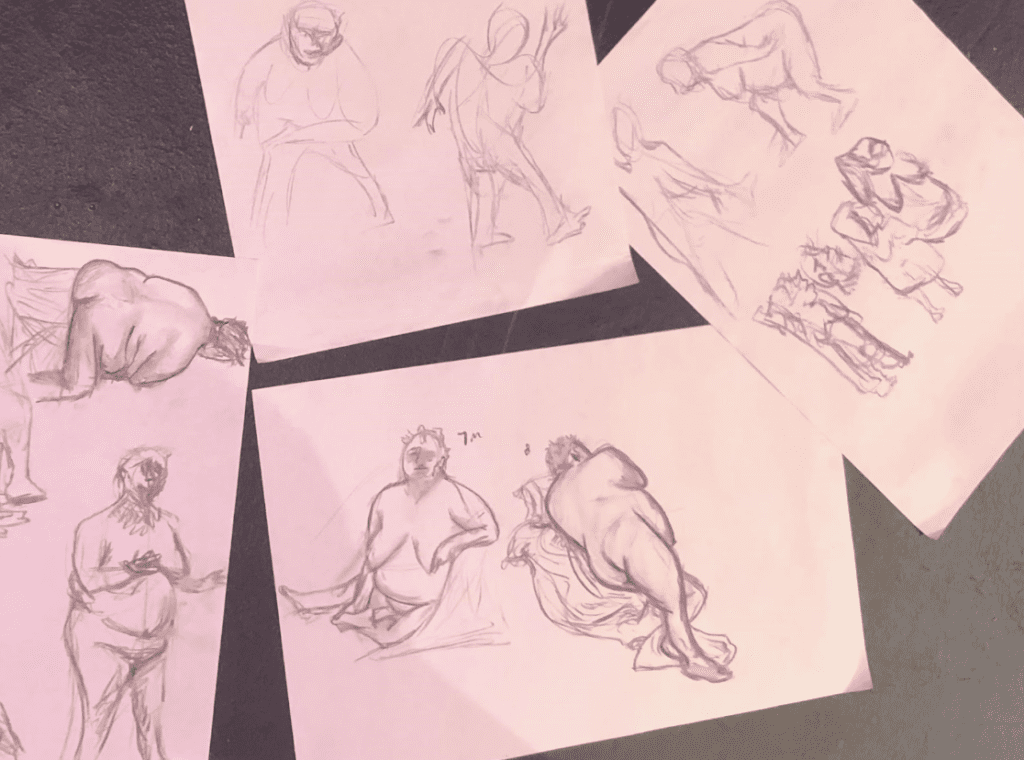
“No One Special, By Someone Special”
By Eleanor Yuneun Park
Julie Kim swears that there is no cathartic, full-circle moment in her debut stand-up show, No One Special. She fervently denies that her family’s immigration story to Canada — the main focus of her show — is met with some grand release that washes away all the trauma that universally appends the journey for a “better life.” Her no-nonsense attitude towards closure almost dares the audience to minimize the magnitude of her childhood trauma.
Nevertheless, what Kim shares is not easy to overlook. Whenever she warms the audience by projecting innocent photos of her family’s earlier years in Canada on the wall, she contrasts the imagery with her deadpan delivery of the most traumatic childhood memories. It is for this reason that the audience at the performance I attended often seemed at a loss in deciding the appropriate reaction for what was meant to be comedic, but disguised as pain. From being blamed at age five for failing to stop her younger sister from running into the street, to never hearing her parents say “I love you,” Kim shares only fragments of her life, but they clearly paint a bigger picture.
If it is universally true that comedians use comedy as a mode of release from childhood deprivation or isolation, immigrants could be crowned jesters of them all. True to form, rising comedians in recent years like Hasan Minhaj, Jimmy O. Yang, and Ronny Chieng — the latter of whom Kim has toured with — have successfully created story arcs with their own variant of the immigration story.
This is why I often forgot that I was listening to a fellow Korean when watching Kim: certain childhood anecdotes of hers wouldn’t sound out of place in Yang or Chieng’s shows. Projecting memes for laughs that lack a strong correlation with the overarching story also doesn’t help to distinguish her from the larger group of “immigrant traumedies.” However, almost as if she predetermined my concerns on the saturated pool of immigrant narratives, Kim establishes why her story is unique.
No One Special’s theme intertwines with a uniquely Korean word that is used to describe deeply entrenched, resentful sorrow: “han” (한). The word is a painfully nuanced encapsulation of the nation’s colonized and war-torn history, which caused countless generations of Koreans to live in “han.” However, what Kim vows to do with “han” and how she will reclaim her immigrant story is what ultimately makes her show cathartic and her someone special.
“Hermaphroditus a Hit-and-Miss Climb Up Olympus”
By Haley Sarfeld
Tokenism, transphobia, and terrible taste in television — Mount Olympus is full of divine disappointments, but one Greek Goddex remains undeterred.
Hermaphroditus, presented by Rose Gold Productions and Dead Name Theatre with Necessary Angel, is a quirky grafting of urgent modern discourse onto a gnarly, mythological rootstock. On a mission to claim their seat in the pantheon, Hermaphroditus (Rosalind Goodwin) dreams of changing the system from within, championing trans rights for deities and mortals alike. What could possibly go wrong?
The story follows Hermaphroditus as they ascend Olympus to challenge anti-trans legislation enacted by Hera (Jan Jennings). Jennings channels some terrifying TERF energy as Hera, putting a concern-trolling spin on the goddess of home and hearth. Hermaphroditus now finds themselves pulled between the gods and the world below, where their friend and mentor Chariclo (Margo MacDonald) accuses them of abandoning their community to rub shoulders with Olympian elites. MacDonald, stepping in as a replacement for Troy Emery Twigg, brings style and lucidity to some of the script’s weaker lines. As characters debate the politics of drag, Zeus’ (Titus Androgynous) thunderously flirty performance had me making a mental note to follow @weather.daddy on Instagram.
During the opening address at the performance I attended, director Cole Alvis mentioned some last-minute cast and crew changes (the theatre gods are fickle!) and emphasized that the current iteration of Hermaphroditus is “a process showing.” At this point in the process, results are mixed.
While the external trappings of the work-in-progress — a script in MacDonald’s hand, a forgotten line here and there — feel inconsequential, elements of the play itself remain undercooked. Certain moments — like when Zeus and Hera sit a disgruntled Hermaphroditus down to watch RuPaul’s Drag Race — work beautifully to get the show’s point across without lecturing. In other scenes, somewhat shoehorned rhymes and on-the-nose parallels to real life detract from the power and complexity of Hermaphroditus’ message and world-building.
Hermaphroditus offers a much-needed respite from the heavy cloud of tragedy that hangs over trans narratives, providing a playful avenue to explore power and privilege. While the writing sometimes errs on the side of being overly didactic, the performance is lively, the costumes are colourful (thank you, Eish Van Wieren), and the show is fun to watch. As Hermaphroditus, Goodwin makes good on our hero(ine)’s claim of being half nymph, half bombshell. Bleakness stands no chance against burlesque!
I left Theatre Passe Muraille happy to have spent an hour in the world of Hermaphroditus, messy moments and all. I look forward to seeing where this show goes in future iterations. In the meantime, I’m glad I had a chance to join it for a stretch of the journey up Mount Olympus.
“Some Incomplete Thoughts on An Incomplete List of All the Things I’m Going to Miss When the World is No Longer”
By Sarah Jean Abernethy
When I decided to see An Incomplete List of All the Things I’m Going to Miss When the World is No Longer, I wouldn’t have believed it if you’d told me that I would wind up onstage partying with the ensemble. That in fact, among actors clad in glittery monochromatic outfits, my once fellow audience members and I would be serenaded and spun around at the last party on Earth. As such, potential audience members (or rather, party attendees) are best to entirely reconsider what they think a doomsday story might look or sound like. (Hint: it can be a lot more psychedelic and queer than Netflix’s Don’t Look Up.)
The 90-minute musical created by Dante Green has been reproduced several times, including most recently at Sheridan College last fall. It follows the final days of characters who are considering the weight that love and human connection can hold when the world suddenly has an expiration date.
Trust (Louise Camilleri), a mother, yearns to see her missing son John (Jameson Mosher) one last time. Pruitt (Ryan MacDougall) contemplates whether to confess their love to their seemingly unaware, party-throwing best friend Micah (Max Borowski), and Peter (Chris Tsujiuchi, who is also the show’s music director) hopes for a final gesture of social acceptance.
Despite its apocalyptic premise, An Incomplete List… leaves the audience with questions about why the world is ending in the first place. At times, the setting might benefit from what science fiction buffs would probably call “world-building.” While the standout score is synth-y and nebulously futuristic in sound, and some fleeting clues arise about the time’s technology (like omnipresent smart home “Ellie,” and an indication that movies are a thing of the past) — there are few concrete details about what this futuristic world is like.
Though perhaps omitted to prioritize character, more development of the story world might allow audiences to identify more deeply with the intimacies that play out onstage. However, anything that the production might want for in aspects of narrative is compensated by an undeniably symbiotic, simply charming ensemble. Alyssa Martin, Tkaia Green, and Mara Turenne’s choreography and Dante Green and Ally Chozik’s direction are executed with such energy and enthusiasm that you really do feel their absence when the lights come up and the show is no longer.
“Fertility Slippers: A Humorous and Heartfelt Mother-Daughter Duo”
By Aylin Oyan Salahshoor
“Know who you are, know where you are from!” echoes through the air as the vibrant Mother imparts wisdom to her Daughter, Banu, in Fertility Slippers.
Directed by Christopher Legacy, the show specifically concentrates on the intergenerational interactions between a first-generation Turkish mother (performed humorously by Aida Keykhaii) and her daughter (performed by sweet Parnian Pourzahed). Fertility Slippers is an amusing, inspiring story about the complicated tapestry of Turkish-Canadian lives in Vancouver, and features a deft combination of storytelling, song, dance, traditional rituals, and strong acting.
The play enlivens the funnymoments that arise from the collision of cultures and the intergenerational differences between Banu and her mother to portray the Mother’s struggles and dreams for her family in a strange land. Simultaneously, it delves into the daughter’s quest for identity as she grapples with the weight of her heritage and the pressures of assimilation.
The highlight of Fertility Slippers is its ability to strike a delicate balance between emotional depth and lighthearted humour. The script (by Ece Aydin) effortlessly incorporates moments of laughter, providing necessary relief from the heavier themes such as cancer, death and loss, allowing the audience to connect with the characters on a deeper level. These comedic elements, mostly sequences of flashbacks and present-day scenes, provide lightness and levity, offering glimpses into charming and often amusing situations as the Mother and Daughter navigate life. “And these peppers, they sing?” the Mother asks in answer to Banu’s frantic inquiry about her prized bandana from a Red Hot Chili Peppers concert.
The production is further enhanced by its evocative yet modest set design using culturally specific motifs like a rug, fortune-telling coffee cups, and simple lighting, effectively transporting the audience between different periods and locations. The music and playful choreography add an additional layer of emotional resonance, capturing the essence of the characters’ experiences and inner worlds. Thus, Legacy does a superb job of setting a pace that makes the characters’ life journey feel like a rollercoaster of joy and sorrow.
For anybody interested in tales of cultural identity, familial bonds, and intergenerational narratives, Fertility Slippers is a must-see.
“The Parenting Trap, or PAZ“
By Columbia Roy
In 76 per cent of child abduction-turned-homicide cases, the child was dead within three hours.
Knowing that, how confident would you be that you’ve confronted the right suspect?
Written by Alicia Payne and directed by Joy Castro, PAZ follows the contentious relationship between Mrs. Knowles (Stephanie Belding) and her freshly fired Filipina nanny Paz (Christine Cortes) after her daughter Kim’s sudden disappearance. PAZ explores the blurred lines that duty-hired caregivers navigate worldwide, and the beliefs we cling to in order to prevent our world from shattering.
I’ll admit, I was apprehensive, knowing the show begins with the highest stakes. How would they leave room to build?
Convinced Paz is jealous of her status, yet refusing to interrogate her own maternal jealousy, Paz’s unshakeable self-assuredness forces Mrs. Knowles to confront the truth – that believing you’re a good person does not negate your behavior. Emotion builds until she must admit defeat and grapple with her own role in Kim’s disappearance. Though I wanted more exploration of Paz’ apex, the price of attending opening night is often a few snafus, so I hope the company continues to play with that through the run and beyond. Just as we see the spark of redemption in their narrative, Kim returns, and with her, the tension.
But despite its gravitas, I could not stop laughing.
Paynes compelling dialogue and the obvious rapport between actors highlights the absurdity of Knowles’ conviction, and the privilege it stems from. Belding’s perfectly embodied white woman-isms are straight out of a PTA nightmare, and the unexpected physical comedy she brings to the character is delightful even in serious moments, especially opposite Cortes’ blunt demeanor. Unstoppable force, meet immovable object.
Though both actors have comedic chops, Castro is deliberate in finding those humorous moments to bring nuance to the play’s world. PAZ is neither comedy nor drama, just like neither woman is wholly hero nor villain.
The intentional ambiguity of Knowles’ redemption arc reflects the improbability of snap transformations in creatures of habit, still change must start somewhere. While it would be easy to dismiss Knowles as irredeemable, this is a disservice to the complexity of both characters. Payne’s work “asks you to look at both women,” as she puts it, knowing that neither “can [ever] be the same.”
And though there is a distinctly Filipino perspective brought from a lot of the team, like Cortes, who reflects on “more or less re-discovering [her] mother” through Paz, Payne stresses us to continue thinking about the international and intersectional axis of these issues.
More than anything, in a world of growing discussion of mental load and the deconstruction of traditional ‘women’s work’, Arbez Drama Projects’ PAZ is a labour of love inspired by those who labour to love us.
“We’re People, There’s Levels to Us!”
By Dario Dvon
If you’re a fan of Disney’s High School Musical, R&B music, and comedic radio commentary, then Levels the Play, created by Clarence (CJ) Jura and Abby Grass, is the perfect modern blend for you. This dynamic production takes us on a journey through the final year of six talented urban high school students as they navigate challenging issues such as sexual abuse, racial bias, self-discovery, friendships, love, and self-acceptance. The performances are remarkable, with each cast member bringing their own unique style, personality, and artistic sound to the stage.
What really stood out to me were the captivating performances of the cast members in this play. The authenticity of Izzy’s character, portrayed by Luca McPhee, immediately drew me in, with their vocal ability and emotive delivery shining in the song “Loose Ends.” Chris Otchere’s portrayal of Chris, a proud, queer, Black high schooler, brought infectious energy and charisma to the stage. Chris’ character’s love story I am so here for, and boy can he dance. He ate and left no crumbs and with leopard print hair to match, he was truly ferocious.
Nadia Casandra’s character, Bre, displays beautiful vocals and a strong presence, adding depth and harmony to the cast. As the drama unfolds, as it often does in high school, her character bobs and weaves through it all to stand firm. Isaiah Nembhard’s portrayal of Cyrus, the supportive sports jock, brings love and strength to his fellow cast members, infusing the play with hip-hop vibes in his song “Another Shot.” Tavaree Daniel-Simms as JP – Jean-Pierre – impresses with soulful vocals and poetic lines that resonated with the audience the night I attended, emphasizing the importance of being true to oneself. Annelise Forbes, who playsZoe, displays smooth vocals and deliberate acting even when not in the spotlight, leaving a powerful impact on the audience, particularly in the song “Gardens.” Overall, the cast delivers stunning performances, each showcasing their unique talents and contributing to the emotional journey of the play.
There are Levels to this play, brought forth by each character’s depth and the beautiful work by Capital Sounds Collective. The standout song for me is “Together.” This song took me back to my Glee days, with dancing and movements that warm your heart, ending with full jazz hands emphasizing the sentiment that we are stronger together. The genius idea of radio commentary to aid in the transition from set to set isa delight every time. I may have gotten too invested in the story and was left with so many questions— were the friendships repaired? Did the love stories come to fruition? And were matters dealt with? As that final school bell rings, what will our hearts hold on to? What I will hold on to for now is the hearts and talents of each performer on that stage at Native Earth’s Aki Studio.
“Review: The Woman Who Ate Falafel at the Toronto Fringe Festival”
By Zoe Marin
Disclaimer: Zoe Marin is also involved with the Toronto Fringe as a performer in You Think You’re Better Than Me?.
Epic Productions Studios’ The Woman Who Ate Falafel finds heart and hilarity in its use of physical comedy and personal anecdotes, but at times loses clarity with its point of view.
Writer and performer Fatma Naguib emerges from the symbolic, vagina-like curtains centre stage, and so, we start with the beginning of Naguib’s life. While the show does explore social conflict between Canada and Egypt, at its core, The Woman Who Ate Falafel is not about Egypt, Canada, being a woman, or even being a comedian.
This show is about Fatma Naguib.
In this solo show, Naguib takes us through her journey of immigration, detailing the challenges she experienced pursuing her career in Egypt, then while immigrating to Canada, and finally, while grappling with the realization that Canada is not as progressive as she initially thought.
Although the show is centered around her perspective, it is sometimes confusing what exactly that is. When it comes to comedy about social justice, I’m equally curious and terrified to see what a theatre audience — often white and over 40 (like at the performance I attended of this show) — will laugh at. Initially, I was concerned that her real, personal criticisms of the Middle East might validate the pre-existing biases or prejudices of an older Western audience. However, Naguib successfully subverts expectations by starting off with these critiques, and then taking us on her journey of dissolution with Canada’s immigration system and culture.
One memorable stretch is the almost Sisyphean sequence of Naguib marching into the immigration office, trying a new method of getting a visa, being rejected, and then marching around only to enter the office again and repeat the cycle. It’s fun to see some great physical comedy from Naguib accompanied by game show-style lighting and sound cues with perfect comedic timing. While humourous, Naguib still forces the audience to confront and lament on how the more points she gets for experience, the more points she loses from getting older.
Despite these great moments, certain jokes about Canadian identity politics and political correctness occasionally undermine what the show builds towards. Naguib mentions the racial discrimination she experiences, as well as the transphobia her friend experienced from the same Canadian institution. However, in the same breath, she also includes jokes about neopronouns and needing to take English classes to avoid getting canceled from misusing inclusive language. I believe her intention is to highlight the hypocrisy of liberal Canadian politics, but this case of misdirected anger soured much of the rest of the show for me.
Overall, the show is full of fun, heartfelt, and even thought-provoking moments. But when a joke about “cancel culture” gets the biggest laugh from the audience and the biggest eye-roll from me, I had to accept that this show was just not for me.
“Review: Transit at the Toronto Fringe Festival”
By Mehak Aggarwal
“Where is my safe space?,” says the white guy after bursting into a xenophobic rant.
Awkward Dog Productions’ Transit follows Frank (Peter Nelson) and Ernie (Robert McNeeley), childhood friends now in their sunset years, and regulars at their local coffee shop which gets unexpectedly purchased by a Pakistani brother and sister, Mohammed (Ardavan Taraporewala) and Lyra (Zehra Nawab).
Written by Susan L. Brown and directed by Taraporewala, Transit doesn’t let you flinch away from white grievance and the question of whose comfort matters.
In Frank’s own words, he is “an old dog” who reacts badly to change. When he has to co-exist with the new owners, he chooses to pull the laziest weapon – xenophobia with a touch of Islamophobia – from his bag of insults.
Despite a slow start, by the fourth scene, the pieces begin to fall into place and the story’s central conflict takes shape. Everyone (including Natalie Sebastian and Tony Babcock), but especially Ernie, is forced to take on unjustified emotional labor when engaging with Frank. Ernie is perpetually trying to show Frank a better way to be, even at the expense of his own health.
Being a South Asian immigrant myself, I was surprised by Mohammed and Lyra’s courage in the face of overt and covert racism — they call out Frank’s bigotry and don’t let his ignorance slide — as the usual narrative of immigrant reaction is to let go and make peace. The theme of pressure to conform felt by South Asian women in the family unit is also explored — Lyra lives a lie of being a medical student in front of her brother because she is terrified to break his reverie. Taraporewala and his cast have put in the work to develop South Asian characters with honesty and agency.
I loved the callbacks to little banter from the earlier scenes — a broken coffee machine, a hockey jersey, and cryptocurrency make recurring appearances.
The stage design is sparse but efficient as each element is there for a purpose. A change of the painting in the background nods to the change that the new owners signify.
My quibble with the play is that Frank’s change of heart towards the end feels rushed and not earned — just to tie everything up in a neat little bow. I would have loved to see the process of change in him explored more comprehensively. How exactly did Frank come to a point where he became comfortable working for Mohammed?
Xenophobia, white grievance, assimilation are issues as old as time. But considering these issues are still so entrenched in society, the hard questions the play raises are timely. I would recommend experiencing this play and noticing where your sympathies lie. You may learn something about yourself.
Where is your safe space? And more importantly, are you a safe space for others?
The Toronto Fringe Festival runs until Sunday, July 16. Tickets are available here.
Intermission reviews are independent and unrelated to Intermission’s partnered content. Learn more about Intermission’s partnership model here.

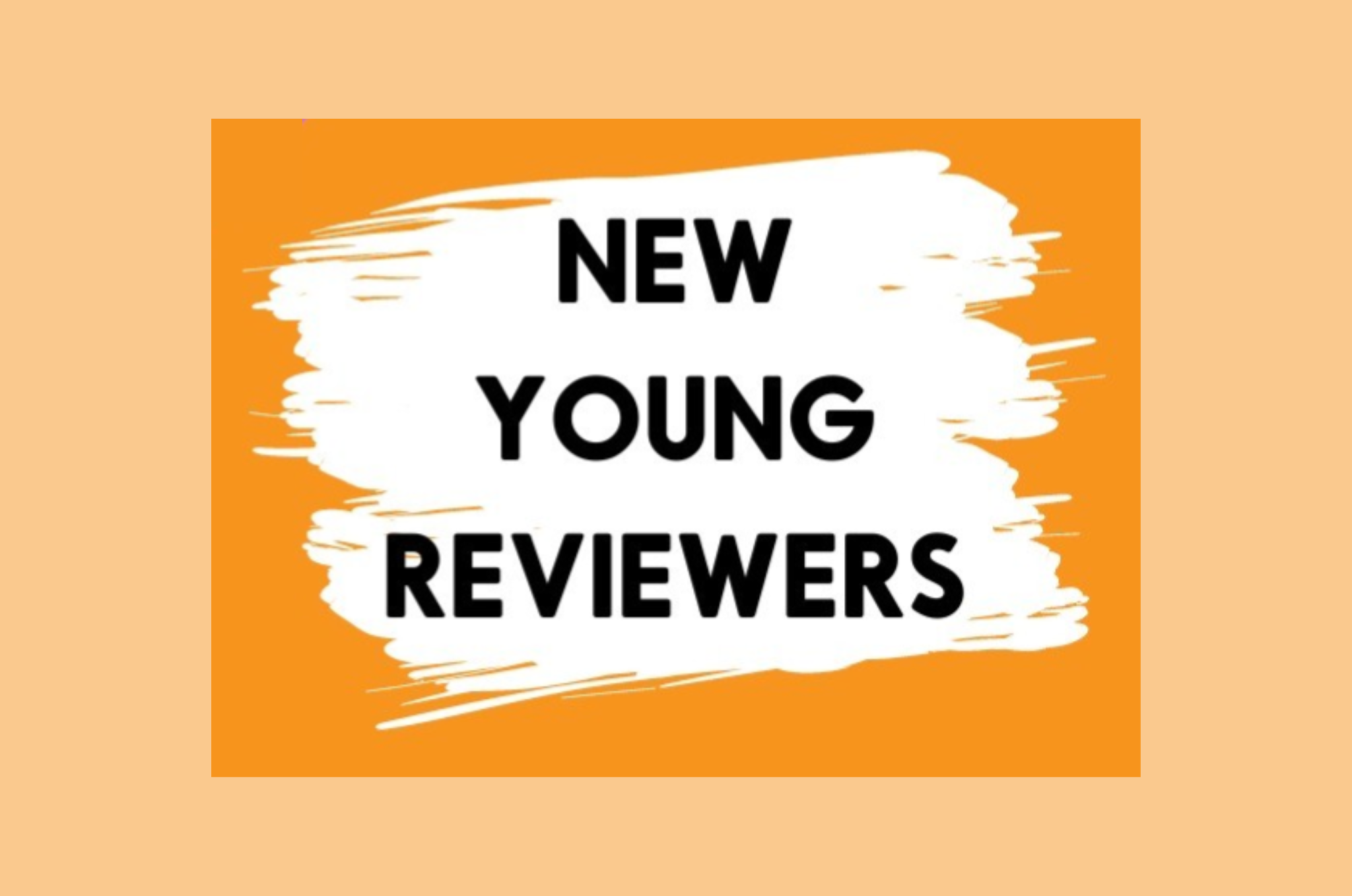








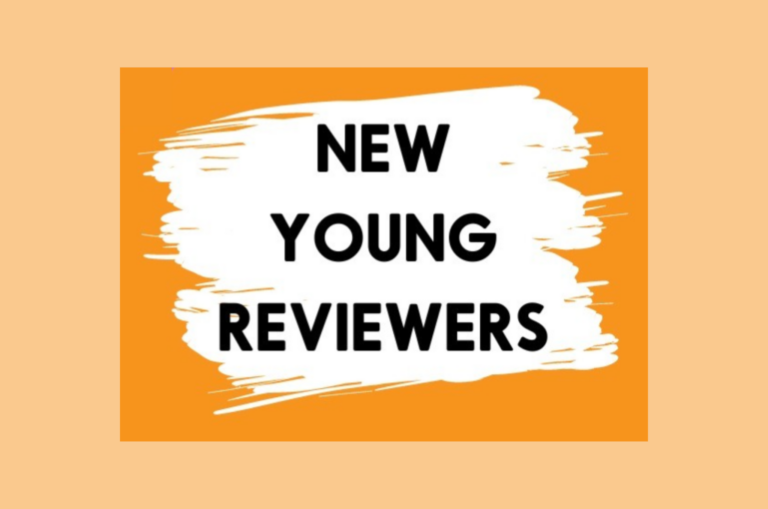
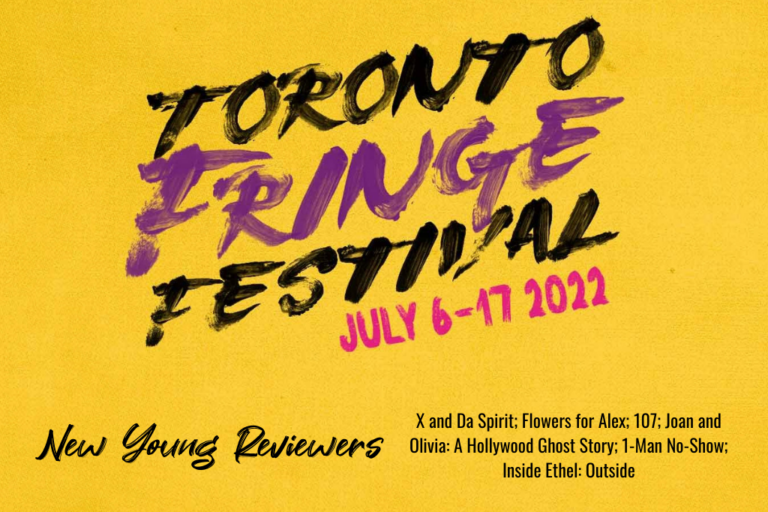
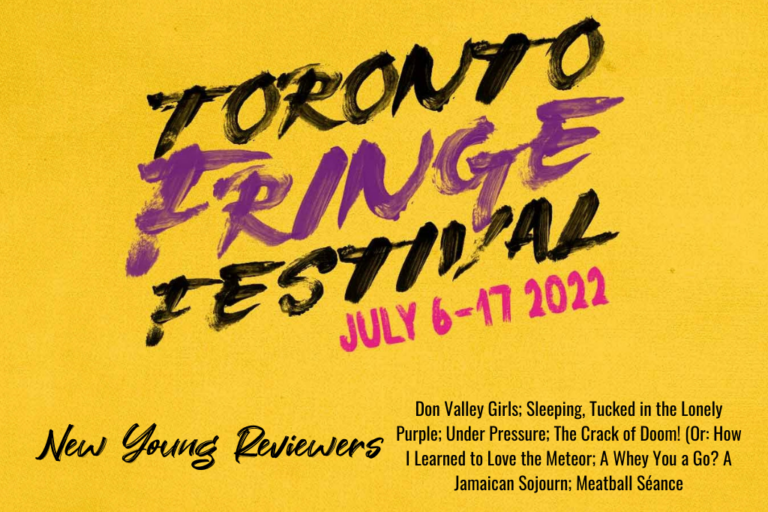

Comments